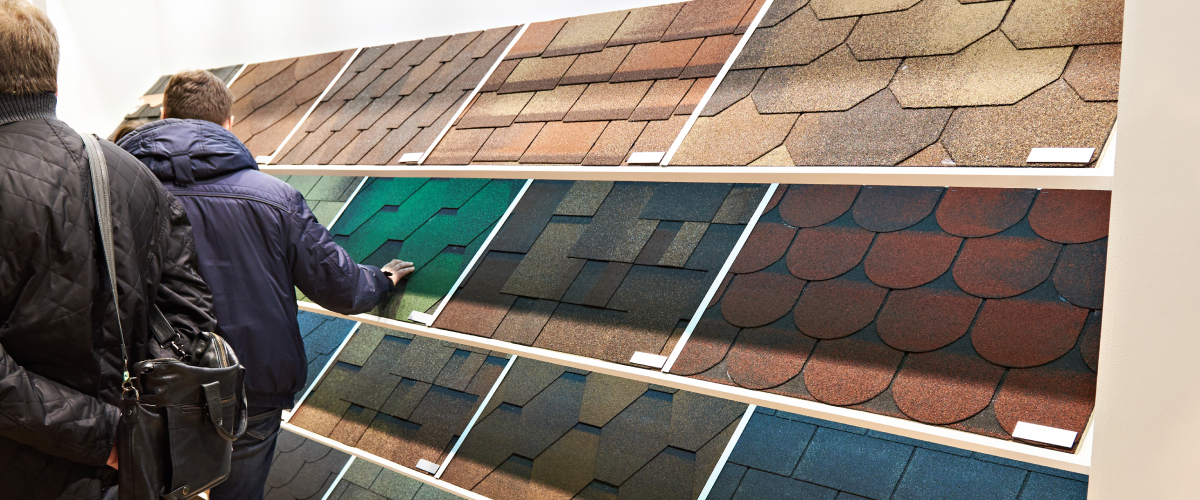
Researching Your Roofing Choices
Which is better, a metal roof or shingles? After a quick Google search, you’ll find the answer is… “it depends.” There are many variables in the roofing industry, but researching your choices will help you make an informed decision.
Understand Your Roof
Knowing the parts and labor that make up your roof’s construction is a great place to start. Gathering information about your roof will help you make decisions in the future and help you understand how best to maintain your roof. Some things you’ll want to research about your roof are:
- Roof type
- Roof size and pitch
- Current material
- Ventilation systems
Roof Design Types
To find your roof’s design, look up pictures of roof types and find one that’s a close match. There could also be added structures on your roof called gables. These jutting windows don’t affect the design of your roof, but they do add square footage and complexity.
Flat roofs and commercial roof types will also have very different roofing systems. Check out our service page if you want flat or commercial roofing information.
Roof Size and Pitch
You could calculate roof size yourself, but asking a professional to find it is much easier. Knowing your roof’s correct length and pitch will help you consider cost and materials.
Current Material
You may be happy with your roof and like how it looks, especially if it has never given you trouble. As the saying goes, “if it ain’t broke, don’t fix it.”
Eventually, however, all roofs need to be replaced. It’s a good idea to identify what materials currently make up your roof, using this information as a baseline to prolong longevity and durability.
Ventilation Systems
Roof ventilation is an integral part of your roofing system. You can typically see most ventilation systems from the ground. Many kinds of vents exist, but you can quickly identify them using pictures. Take a look at what type of ventilation your roof uses. The more you know about your roof, the better.

Where to Start Researching Roofing Choices?
When starting your roofing research, there are some basic things you’ll need to know. This preliminary research will help you understand what jobs are necessary and give you a roadmap of what is ahead.
Inspection
A professional’s observations on your roof will help you get the correct information. They’re trained to look for specific wear and can provide insight into potential repairs or replacements.
Not only are inspections great for when you suspect a repair is needed, but professionals recommend you get one annually. Before committing to anything, getting an expert’s opinion on what your roof needs is essential.
Budget
Look at how much you can spend on your repair or replacement. If your inspection finds something wrong, ask for an estimate. It’s hard to figure out your budget without knowing how much the project might cost.
It’s easy to get discouraged, but there are ways to decrease your cost, and unless you have to conduct the repair immediately, take a couple of months to save for the repair.

Next Steps
Accepting the first bid and starting your project may be tempting. However, you should postpone this step if you need help understanding the specifics. Agreeing to the first bid isn’t always the best idea, as there may be other options. If you have the available time, feel free to use it.
Here are some things to research after understanding what your roof needs.
Research Material Options
There are many roofing materials; each has pros and cons. You can easily research most of these on the Internet. However, common roofing materials include the following:
- Asphalt Shingles
- Metal
- Wood
- Clay & concrete tiles
- Wood shingles/shakes
- Slate shingles
- Rubber tiles
- Living roof
Each of these options varies in cost. Asphalt is the cheapest option, and slate is typically the most expensive. Living roofs are only available in certain climates, and wood shingles aren’t a good option for homes in extremely dry or wet environments.
Get More Estimates
Having multiple options and expert opinions helps make the final decision. You should get at least three estimates before finalizing your plans.
It’s important to remember that these estimates are not final costs. You won’t know the actual cost until the project gets underway. Finding a contractor who will lock the price before the project starts is possible, but that’s not the standard.
Some critical numbers from the estimates include:
- Tear off labor costs
- Install labor costs
- Material costs
- Contingency costs (outlines costs for repairs discovered during the project)
These costs will act as your way to compare bids.

Do Some Math
Initial installation costs vary widely, but considering the cost over time is vital. For example, a more expensive shingle with a longer expected lifespan may be cheaper over time than an inexpensive shingle with a shorter life expectancy.
Map it out using your roof’s size and estimated material costs, labor costs, etc. You may be surprised at how affordable some options may be in the long term and vice versa.
Making Decisions
Congratulations! You now have all the information you need to decide on your next roofing project.
Now that you understand your roof and its needs, you have enough information to make an informed decision. Consider your budget, your desired material, and the project’s final cost. Weigh your options and consider what’s important to you.
Choosing a Contractor
When choosing a contractor to entrust to your roof, ensure they are certified and licensed. Avoid deciding on price alone. A cheap but poorly installed roof can become expensive.
Start Your Project With Legacy Repair
There’s a lot of information about roofing freely available online. Do your research and partner with a local roofing contractor to discover what options are available to you.
If you’re looking for guidance in the central Arizona area, contact us today, and we’ll get back to you within 24-48 hours to schedule an inspection.